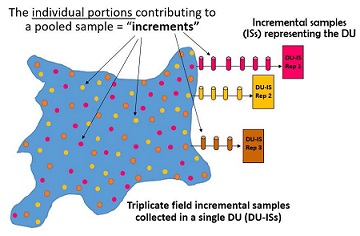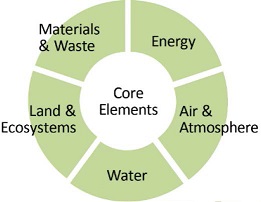About the Technical Support Project Engineering Forum
Engineering Forum Providing Information Exchange and Technical Support To Remedial Project Managers
- About the Engineering Forum
- Training
- Meetings
- Incremental Sampling Committee
- Greener Cleanup Subcommittee
About the Engineering Forum
As one of the EPA Technical Support Project’s three technical forums, the Engineering Forum (EF) is a medium for exchanging technical information among members and remedial project managers (RPMs). The EF also provides technical support on engineering issues to EPA’s 10 Regional offices and serves as a line of communication between EPA Headquarters Office of Land and Emergency Management (OLEM), the Regions, and the laboratories of EPA’s Office of Research and Development (ORD). The EF encourages information exchange among these entities regarding innovative site characterization and cleanup technologies. The EF focuses on site-specific engineering problems, alternatives and solutions, and lessons learned.
Forum membership includes Regional engineers and other technical professionals interested in using innovative technologies to solve environmental engineering challenges during waste site cleanup. In addition, "Friends of the Forum" representing the ORD laboratories, Headquarters program offices, state agencies, and the U.S. Army Corps of Engineers actively collaborate and participate with the EF.
Training
The EF provides and participates in training at the National Association of Remedial Project Managers (NARPM) Training Program. Recent training topics have included: case studies, in situ chemical oxidation, greener cleanups, best management practices (BMPs), dense non-aqueous phase liquid (DNAPL), and climate change adaptation. To date, more than 1,000 people have participated in these trainings, fostering increased knowledge throughout remediation programs, promoting regional and cross-program consistency, and encouraging speaking with ONE EPA voice.
Meetings
The EF holds monthly conference calls that include technical presentations by guest speakers to promote group discussion and information sharing. Technical talks are followed by the necessary organizational business talks that keep the EF productive. The forum endeavors to meet in person to discuss business and participate in technical training every one or two years.
Incremental Sampling Committee

The EF’s Incremental Sampling Subcommittee was created in 2017 to establish a community of practice, help educate federal and state environmental professionals, develop expertise in every EPA Region, and draft papers on current and new incremental sampling topics and procedures.
Incremental sampling is an unbiased, structured soil sampling protocol that reduces data variability and increases sample representativeness. It accomplishes this through careful up-front planning that defines what the soil samples are intended to represent, and through use of specialized sample collection procedures in the field and laboratory.
Greener Cleanup Subcommittee

The EF formed the Greener Cleanup Subcommittee (EFGCS) in 2008 to facilitate the flow of information about sustainable approaches to site cleanup among OLEM programs and our state and federal partner organizations. The EFGCS is involved with OLEM’s Office of Superfund Remediation and Technical Innovation (OSRTI) as a key technical reviewer in the development of guidance and training for RPMs to incorporate greener cleanups into the remediation process. The EFGCS also promotes greener cleanups principles to the Brownfields, RCRA, Toxic Substances Control Act (TSCA), and Leaking Underground Storage Tank (LUST) programs. Recent accomplishments by the EFGCS include:
- Hosted a National Green Remediation Coordination Workshop (2010)
- Assisted with BMP fact sheets (2011-2012)
- Published a methodology for understanding and reducing a project’s environmental footprint (2012)
- Released Spreadsheets for Environmental Footprint Analysis (SEFA), a calculator for environmental footprinting (2012)
- Updated SEFA (2014)
In 2014-2015, the EFGS prepared and deployed two greener cleanups surveys to RPMs. Results of the baseline survey led to a more detailed, site-specific follow-up that went to the Regions in 2017. The EFGCS is currently preparing a template for regions to collect and report greener cleanup metrics in all cleanups.
